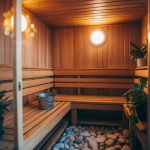DIY Off-Grid Living: Top Tips for Setting Up Your Sustainable Life
Financial Independence from Utility Bills
One of the most attractive advantages of off-grid living is reducing or eliminating electricity bills. Setting up solar panels or wind turbines can be a cost-effective solution to generating power independently. Even though the initial installation may require an investment, the savings over time are significant as reliance on public utilities is minimized.
Water collection systems, like rainwater harvesting, can effectively decrease dependence on municipal water sources. Sustainable practices such as these not only provide independence but also reduce overall living expenses.
Investing in energy-efficient appliances helps maximize energy use. This kind of self-sufficiency supports a lifestyle that remains stable even in changing economic conditions. By carefully managing resources, individuals can successfully create financial independence, thereby reducing monthly living costs.
Adopting a Minimalist Lifestyle
Adopting a minimalist lifestyle can be a key step in off-grid living. It involves reducing unnecessary possessions and focusing on what truly matters. This shift not only reduces clutter but also simplifies daily life. As individuals embrace this lifestyle, they often find themselves more in tune with nature and their immediate surroundings.
Minimizing possessions encourages a deeper connection with the environment. Without the distraction of unnecessary items, individuals often engage more with outdoor activities. This can lead to a greater appreciation for the natural resources that sustain off-grid living, fostering a symbiotic relationship with nature.
Lifestyle choices play a significant role in achieving sustainability. Prioritizing quality over quantity means choosing durable, multi-functional items that reduce waste. This not only supports a minimalist approach but also ensures that possessions have longevity, reducing the need for constant replacements.
A minimalist lifestyle supports mental and emotional well-being. By prioritizing simplicity, individuals may experience reduced stress, as they no longer need to manage a plethora of possessions. This clarity allows them to spend more time on hobbies, relationships, or personal growth.
Lastly, embracing minimalism can lead to financial savings. By purchasing fewer items, people can allocate resources to more meaningful experiences. This not only enhances their quality of life but also aligns with sustainable practices essential for successful off-grid living.
The Impact of Off-Grid Living
Off-grid living offers significant environmental benefits. By removing reliance on fossil fuels, individuals can reduce their carbon footprint, thus contributing positively to climate change mitigation. Renewable energy sources such as solar panels and wind turbines power these homes, aiding in the conservation of natural resources.
Living off-grid also promotes an eco-friendly lifestyle through sustainable practices. Homeowners often manage waste more efficiently, practicing composting and recycling. Water is typically sourced through rainwater harvesting systems, reducing strain on public resources. These small changes contribute to a larger impact on environmental preservation.
For many, the shift to off-grid living involves lifestyle changes that encourage a deeper connection with nature. They become more conscious of their daily energy and water consumption. Through this mindfulness, an awareness and appreciation for natural resources develop, often leading to smarter consumption choices.
The financial aspect should also not be overlooked. While initial setup costs can be significant, long-term savings from reduced utility bills and self-reliance on energy make it an attractive choice. It allows individuals to invest in sustainable solutions that benefit both the planet and their wallets in the long run.



